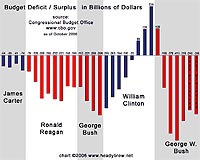 |
Beijing (AFP) July 14, 2010 A growing number of foreign companies in China, faced with spiralling wages and a shortage of skilled workers, are moving their factories inland to contain rising costs, analysts say. After a spate of strikes and minimum wage hikes resulted in hefty pay rises for millions of workers, firms are looking to capitalise on government incentives to shift their operations to impoverished western China. Foreign-invested firms are also looking to tap into a young, talented labour force which no longer wants to sacrifice family ties by leaving home to work long days in the coastal industrial belt. "It makes economic sense," Bhavtosh Vajpayee, an analyst at CLSA Asia-Pacific in Hong Kong, told AFP. "Profitability is low in the assembly manufacturing business -- many of these companies have operating margins of two to four percent, so that is not a lot of headroom if your costs start going up." After a run of worker suicides and subsequent wage hikes, Taiwan high-tech giant Foxconn reportedly plans to move some assembly lines from the southern boomtown of Shenzhen to the central province of Henan. While the minimum wage in Shenzhen is 1,100 yuan (160 dollars) per month, it is just 600 yuan in Henan. Foxconn -- which employs more than 400,000 people in Shenzhen to make products for Apple, Panasonic and other top brands -- also intends to boost production at existing plants in southwestern Chengdu and northern Tianjin. US computer maker Hewlett-Packard and US networking giant Cisco have set up manufacturing bases in the southwestern mega-city of Chongqing, which wants to transform itself into Asia's biggest IT manufacturing base, state media said. Taiwanese companies Quanta Computer and Inventec Corporation plan to begin pilot runs of their new production lines in Chongqing later this year, said Kevin Chang, a Taiwan-based analyst at Fitch Ratings. Chang said the trend for companies to move inland is not a one-off response to the labour strife, and will continue. "In coastal areas of China it will be more difficult to find talented workers as a result of the wage increases and greater work opportunities in inland China," he said. The government has invested heavily in recent years in improving railways and highways linking inland regions with ports on the coast, making it feasible for factories to move assembly lines to more far-flung areas. The public spending spree in the poorer parts of central and western China also has boosted job opportunities for millions of people who previously would have had to travel thousands of kilometres in search of work. Many young people are now opting to stay closer to home rather than work in factories on the coast, where living costs are much higher and the separation from family and friends more painful, analysts said. "As rural incomes have increased, there is less incentive to leave home," Mark Williams, an economist at Capital Economics in London, told AFP. "Workers now demand much higher wages to move to the coast, so it has begun to make sense to move the factories closer to the workers." Local government officials have also been doing their bit to lure foreign investment by offering companies free land to build new factories, low taxes as well as compensation for the additional costs of transporting products to coastal ports, analysts said. As competition among labour-intensive manufacturers intensifies, those who cannot afford to absorb the increased wages or pass on the costs to their customers will be forced to move west, said Chang. "Suppliers compete with each other for orders. If you increase the selling price your customer may switch their order to your competitor," said Chang. While wages have been increasing for years, Vajpayee said foreign and Chinese manufacturers had now reached a "tipping point" where labour costs were growing at a faster pace than revenues. "Investment in a new factory in an inland province is a better option than continuing with a high cost base in coastal regions," he said.
Share This Article With Planet Earth
Related Links Global Trade News
 Outside View: Threats from trade deficit
Outside View: Threats from trade deficitCollege Park, Md. (UPI) Jul 13, 2010 The U.S. Commerce Department reported the deficit on international trade in goods and services increased to $42.3 billion in May, up from $40.3 billion in April because of a $3 billion increase in the trade deficit with China. U.S. imports are rising much faster than exports and the overall trade deficit will increase even more sharply when oil prices rebound, threatening the economic r ... read more |
|
| The content herein, unless otherwise known to be public domain, are Copyright 1995-2010 - SpaceDaily. AFP and UPI Wire Stories are copyright Agence France-Presse and United Press International. ESA Portal Reports are copyright European Space Agency. All NASA sourced material is public domain. Additional copyrights may apply in whole or part to other bona fide parties. Advertising does not imply endorsement,agreement or approval of any opinions, statements or information provided by SpaceDaily on any Web page published or hosted by SpaceDaily. Privacy Statement |